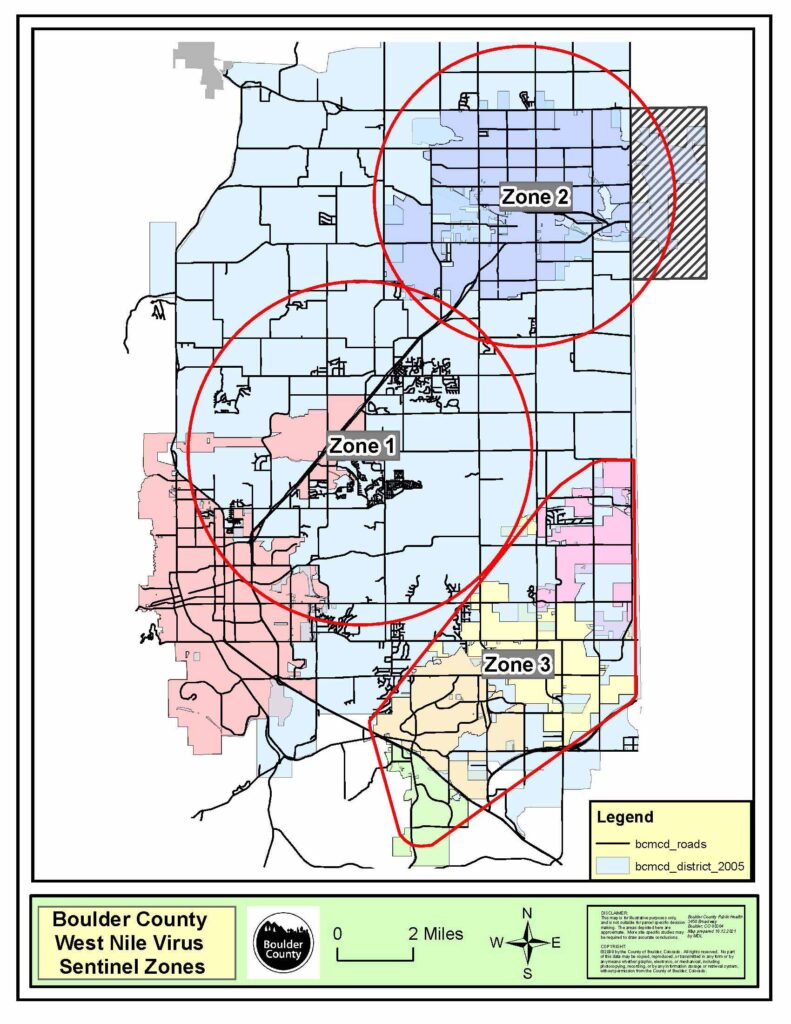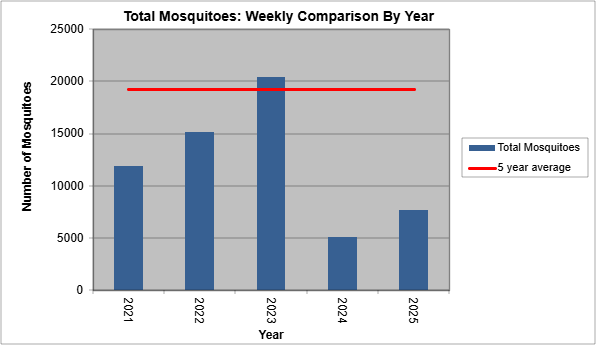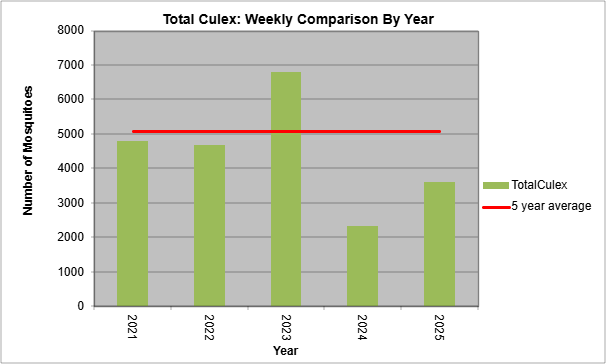A comprehensive mosquito management strategy is employed to address the dual challenge of nuisance and potential health risks posed by mosquitoes as carriers of the West Nile virus. The approach is grounded in Integrated Pest Management (IPM), a method designed to effectively reduce mosquito populations while prioritizing environmental friendliness and cost-effectiveness.
This approach focuses on preventing breeding by
- Eliminating stagnant water
- Using natural solutions like Bti bacteria
- Introducing native fathead minnows
- In cases of high mosquito numbers, permethrin, a synthetic chemical derived from the natural insecticide found in chrysanthemum flowers, is used cautiously to minimize environmental impact.
Boulder County Mosquito Control District (BCMCD)
The Boulder County Mosquito Control District (BCMCD) works to keep residents safe from mosquito-related health issues. Meetings, either virtual or by phone, help everyone stay connected and informed. Annual reports give a peek into ongoing mosquito control efforts.
The Boulder County Mosquito Control District (BCMCD) was established in 1995 by ordinance of the Board of County Commissioners to protect residents from the health risks, annoyance, and discomfort associated with mosquitoes.
Meeting Schedule
The second Wednesday of the month
April – October
6 – 7:30 p.m.
Annual Reports
BCMCD Survey Results
The Boulder County Mosquito Control District surveyed residents in 2011 to gather feedback on mosquito control practices. The responses overwhelmingly indicated that people want mosquito control to continue. Many stated that mosquitoes negatively impacted their ability to enjoy the outdoors.
Residential District
The Boulder County Mosquito District encompasses approximately 180 square miles of eastern Boulder County. Because the residents who live within this district pay for mosquito control services, Boulder County can only provide mosquito control services to those who live within the district.

The Boulder County Mosquito Control District (BCMCD) Program is overseen by a citizens’ advisory board appointed by the Boulder County Commissioners.
Key Components of Boulder County Mosquito Control
- More than 94% of the program is biological and physical control of mosquito larvae before adult emergence.
- Adult Mosquito Control comprises less than 6% of the program.
Services that are available, upon request, to those living within the Boulder County Mosquito Control District include:
- Answering questions and providing information on mosquito control.
- Investigating reports of mosquitoes or standing water.
- Excluding district residents’ properties from spraying, if requested.
- Notifying district residents before spraying in their neighborhoods.
- Providing spray schedules.
Integrated Pest Management
The board promotes an integrated pest management program, collaborates with agencies to control mosquito-borne diseases, educates residents in the BCMCD to help identify and reduce mosquito breeding sites around their homes and neighborhoods, and advises the County Commissioners and Boulder County Public Health on mosquito control activities and needs.
Environmentally Responsible
The Boulder County Mosquito Control Program (BCMCP) is one of the most environmentally conscious programs in the nation. Mosquito control services in Boulder County are contracted to a company, Vector Disease Control International (VDCI).
VDCI utilizes an integrated pest management approach to safely and effectively reduce mosquito populations. The National Cancer Institute has shown that all mosquito control materials used in Boulder County are non-carcinogenic and are registered for use by the Environmental Protection Agency (EPA).






